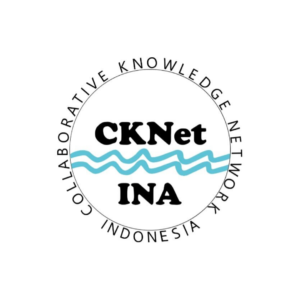Integrated Urban Flood Risk Management (IUFRM)




Today, flood management in many countries is being practised from a Risk Management point of view. To serve the water professional community and to introduce them to thinking in terms of risk instead of only thinking in physical infrastructure, we are offering a digital or online course in Integrated Flood Risk Management.
Sponsored by a partnership of international development organisations, participating in the course as well as obtaining a certificate has no costs for participants.
About this Course
Urban flooding is a serious and growing development challenge. Against the backdrop of demographic growth, urbanisation trends and climate changes, the causes of floods are shifting, and their impacts are accelerating. This large and evolving challenge means that far more needs to be done by policy makers to better understand and more effectively manage existing and future risks. (The Global Facility for Disaster Reduction and Recovery – GFDRR - Unit of the World Bank).
The main objective of this online course is to change the mindset and the decision-making behavior of the water professionals and related decision makers in the government and the private sector. Another objective is to change the way of thinking (mindset) of water professionals and decision-makers from the traditional way of structural engineering design applying existing rainfall-runoff calculation methods and models to one that thinks in terms of risk and probabilities.
Objectives
By the end of the course participants will:
- Describe issues of current urban water management practices showing the fragmented development of planning and action.
- Explain the integrated water management principle which connects basin institutional arrangement and urban water management.
- Describe the integration of urban water management components within a city.
- Explain the types and causes of flooding.
- Understand Flood Hazards and how to apply and interpret a Flood Hazard Map.
- Understand the probability of flooding and the many uncertainties inherent with it.
- Explain the concept of Recurrence Interval and Return Period.
- Understand concepts of Vulnerability & Risk Mapping.
- Understand the concept of Sustainable Urban Drainage Systems (SUDS);
- Explain the role and importance of effective institutions and stakeholders.
- Understand why community engagement is important and how to apply community-based measures to increase resilience.
- Explain financing flood risk management measures.
- Understand the essence of sustainable maintenance systems and how to prevent failures.
Participants
Participants representing various stakeholder groups from the entire water sector:
- Essentially Water Professionals working in the field, rather than (only) academics working in the lecture rooms and research laboratories.
- Drainage and flood professionals working at the government, consultants and real estate developers in Southeast Asia.
- Decision makers wotking for the central and regional government who are responsible for water management in general and flood manement in particular.
- Lectures wotking in the universities teaching topics related to water and flood management.
Contents and course structure
Contents are structured in modules. In each module participants will find readings, videos, suggested web sites, forum discussions and quizzes.
In total 8 learning modules will be offered and delivered:
-
- Introduction to Urban Water Management and Water Related Disasters.
- Understanding flood hazards.
- Probability of flooding and flood hazards.
- Understanding flood impacts. Part 1.
- Understanding flood impacts. Part 2.
- The conveyance and storage approach.
- Sustainable Urban Drainage Systems (SUDS).
- Implementing Integrated Flood Risk Management.
Course approval criteria and certificate
Each module ends with a quiz. Participants are expected to complete every module quiz and have at least 60% correct answers. You have three opportunities to pass each quiz. The quiz is developed as a multiple-choice quiz, where the good answers varies per question from 0 to 4 correct answers. Only the right combination is considered correct. So please read carefully before answering the questions.
The participants are also encouraged to actively participate in the module discussion forum at the end of each module.
Certificate
After completing the 8 modules, participants are invited to answer a short feedback survey of the course. Once this survey is answered, participants may download their certificate. Participation in the course, as well as the download of the certificate, has no costs for the participants.
![]() Language: English.
Language: English.
![]() Structure: 8 modules.
Structure: 8 modules.
![]() Level: Introductory.
Level: Introductory.
![]() Content: readings, videos, forums.
Content: readings, videos, forums.
![]() Time: 16 hours.
Time: 16 hours.
![]() Total time dedication: 8-10 weeks.
Total time dedication: 8-10 weeks.
![]() Institutions: Cap-Net - GWP - CKNet – UKRIDA.
Institutions: Cap-Net - GWP - CKNet – UKRIDA.
![]() Certification: upon approval of quizzes at the end of each module.
Certification: upon approval of quizzes at the end of each module.